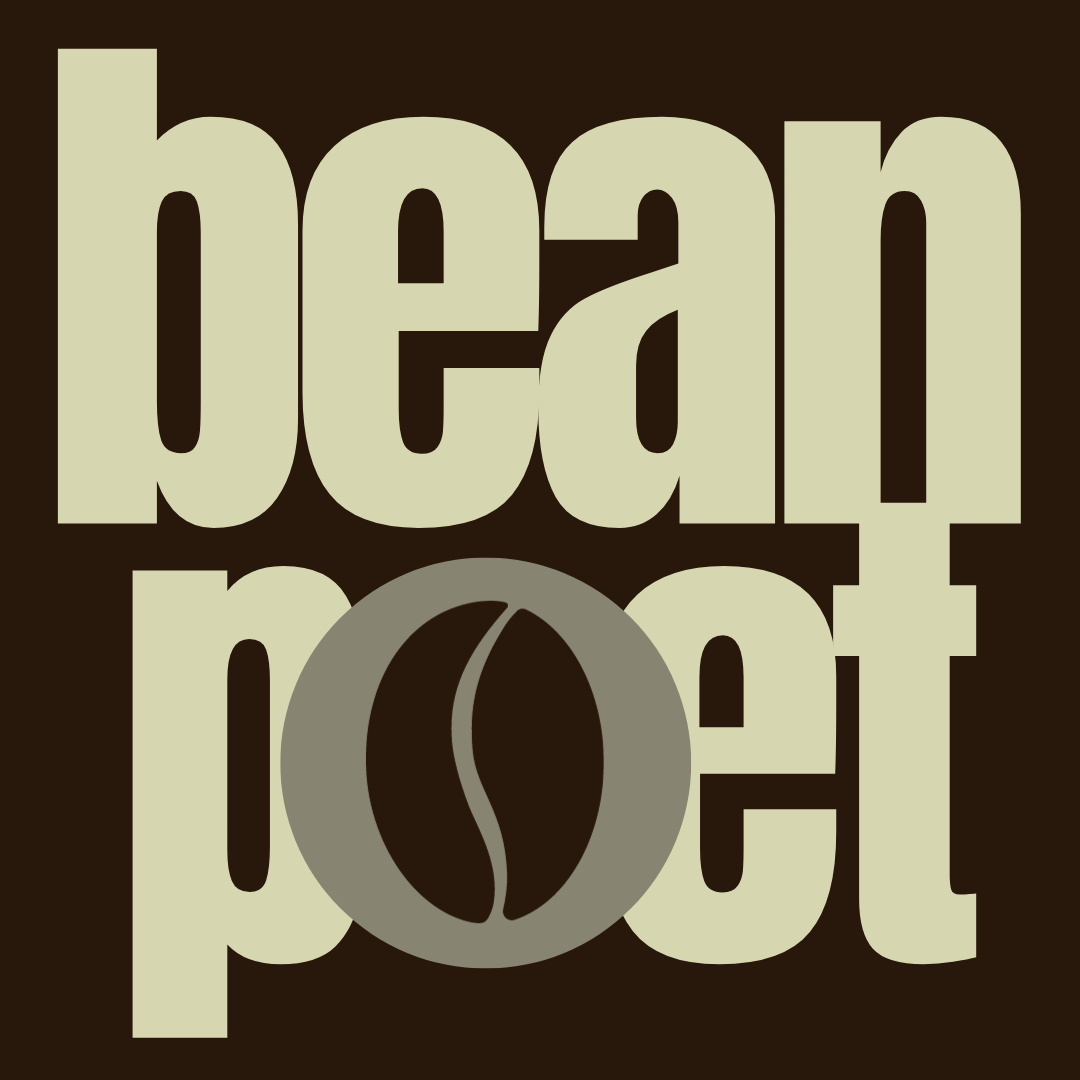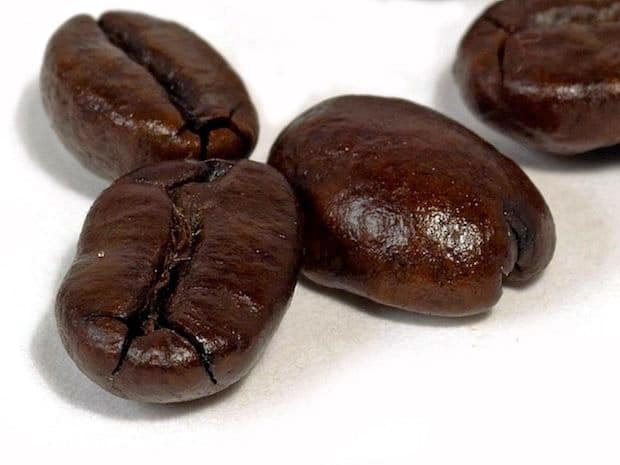Last Updated on December 9, 2023
People who love coffee tend to love it in all forms, including a brewed cup of coffee, frozen coffee drinks, coffee ice cream, espresso shots and just about anything else out there in the coffee market. Most of us have probably seen fancy chocolate-covered coffee beans in candy stores. They are a special treat, indeed.
But can you eat coffee beans without compromising your health? If you’ve ever wondered whether it’s really safe to eat coffee beans, we’re here to cover everything you need to know about consuming them, and its effects on your health.
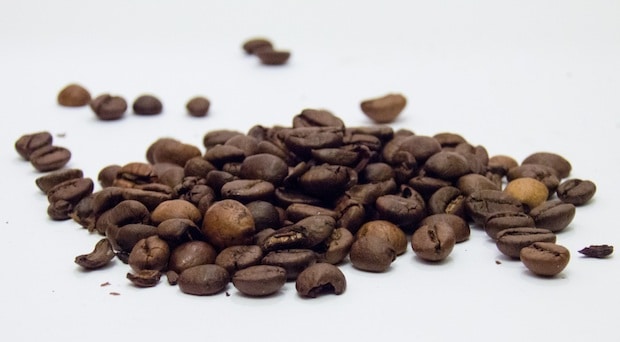
Eating coffee beans vs. drinking coffee
Today, when we refer to “coffee,” most people understand it to be brewed coffee in one of its many forms. However, some people wonder if the brewing process is completely necessary and whether it’s possible to just consume the coffee beans themselves.
You can eat coffee beans. Eating the coffee beans straight and whole is far less common than drinking brewed coffee, but there’s no reason not to do it—in moderation. Consuming coffee beans is as safe and healthy as consuming any other coffee preparation.
Is eating coffee beans better than drinking coffee?
Eating coffee beans may even be more healthy than drinking coffee in some ways. Brewing coffee beans removes some of their antioxidant properties. Eating coffee beans whole is a great way to load up on antioxidants, which protect your cells against free radicals and are linked to lower incidences of cancer, heart disease, and other illnesses.
Brewed coffee has very little fiber, but coffee beans themselves quite a lot. Fiber is an important part of a healthy diet as it helps maintain bowel health and regularity, lowers cholesterol and blood sugar, helps to maintain a healthy weight and even reduces the risk of Type 2 diabetes and certain cancers.
Is it safe to eat raw coffee beans?
Raw coffee beans, also known as green coffee beans, are not easy to eat but they are probably safe. Green beans have an earthy, grassy taste and are extremely fibrous. Most people agree that roasted coffee beans are tastier and more pleasant to eat than green coffee beans. The roasting process caramelizes them and develops their flavors.
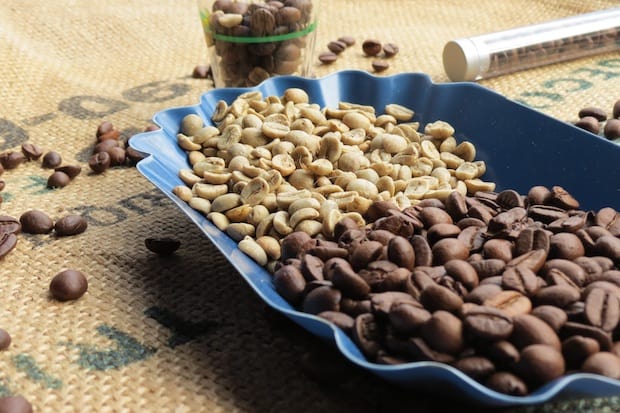
It’s worth noting that whenever coffee beans are sold to be eaten whole—usually covered in chocolate or used as a garnish on coffee-flavored confections—they are roasted. The taste and texture of green coffee beans is considered unmarketable.
However, there may be some benefit to eating your coffee beans green. Green coffee bean extract can lower blood pressure, and the same applies when the beans are eaten whole. Also, we wrote above that coffee beans are a source of antioxidants that are lost when coffee is brewed. Even more are lost when the coffee beans are roasted. Whole green beans have significantly more antioxidants than roasted, brewed coffee, and antioxidants are a good thing!
Benefits of eating coffee beans
Antioxidants and fiber are powerful reasons to prefer whole coffee beans (and especially whole green coffee beans) to brewed coffee. Also, chewing on a coffee bean can eliminate the bad breath that comes from eating onion or garlic.
Some people love the taste of coffee and think that eating the beans on their own gives them the truest taste. And in opposite world, some people hate the taste of coffee and would prefer to just down a few beans as if they were medicine.
Other benefits of coffee, either brewed or in bean form, include:
- The caffeine in coffee beans increases energy and alertness, memory, performance, and mood
- Caffeine can increase metabolism, suppress appetite, and therefore aid in weight loss
- Coffee has been linked to a reduced risk of heart disease and stroke, Type 2 diabetes, certain cancers, liver disorders, brain disorders, and death from all causes
- Caffeine blocks the gene for chronic inflammation, which is linked to mortality and misery
- The theophylline in coffee is a powerful diuretic, which helps to reduce fluid retention, swelling, and bloating
- Coffee contains enzymes that help regulate blood sugar
- Coffee is linked to enhanced cognitive function and a lower risk of depression in adults
- Caffeine has been linked to a lower incidence of erectile dysfunction
- Coffee has been shown to reduce muscle pain after intense exercise by over 50 per cent (over-the-counter painkillers reduce this pain by 25 to 30 per cent)
Risks of eating coffee beans
It’s not exactly a health risk, but many people do not find whole coffee beans to be very appealing in either taste or texture. There is a reason why humans learned how to brew coffee when they wanted to get the benefits that coffee beans offered without having to eat the beans whole.
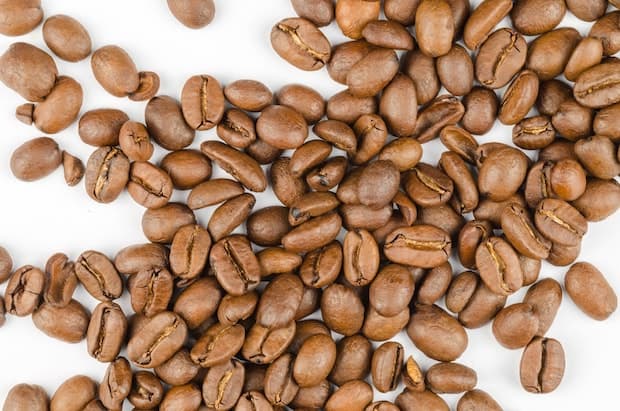
Another concern when eating coffee beans is that the caffeine is both highly concentrated and quick-acting. It’s easy to eat too many beans and therefore take in a higher dose of caffeine than you may have intended. Brewed coffee is diluted and it’s more difficult to accidentally overindulge simply due to the volume of the liquid.
Other risks of eating coffee beans are the same as with any other forms of coffee. Potential side effects include:
- The caffeine and catechol compounds in coffee can increase stomach acid, which can lead to heartburn, bloating, and nausea
- Caffeine can lead to sleep disturbances
- Coffee has a natural laxative effect and green coffee beans can even cause diarrhea
- Coffee may increase the risk of breast cancer and digestive cancers
- Caffeine can increase anxiety, palpitations, and stress, but studies have shown that it has no lasting ill effects or links to cardiovascular diseases
- Coffee can constrict the bronchial tubes, which can exacerbate breathing difficulties
- Coffee is a diuretic; we listed this above as a benefit, and it definitely can be, but it can also be inconvenient and lead to dehydration
- Caffeine can be mildly addictive and withdrawal symptoms include headaches, tiredness, poor concentration, anxiety, and tremors
- Coffee can hinder the absorption of vitamins B and C, certain minerals, zinc, iron, calcium, and magnesium
- Coffee increases the risks of osteopenia and can contribute to osteoporosis
- Coffee may be linked to high cholesterol
- Caffeine is linked to pregnancy complications including miscarriages, low birth weight, and early labor/delivery
- Coffee can reduce sperm count and otherwise impact sperm quality
- Caffeine can aggravate anxiety disorders
- Regular overindulgence in coffee can lead to liver damage and high blood pressure
Limits when eating coffee beans
An eight-ounce cup of liquid coffee has about 95 milligrams of caffeine. An average Arabica coffee bean has approximately six milligrams of caffeine. The level of caffeine in Robusta coffee beans is double. The Mayo Clinic and other reputable health authorities suggest that the daily limit for caffeine intake should be 200 mg per serving or 400 mg per day total.
Eating coffee beans whole may make the effects of caffeine kick in more quickly, since at least some of the caffeine content is absorbed through the mucus membranes of the mouth rather than through the bloodstream (which is a much slower process).
Also, since coffee beans are organic material, they cannot be standardized. Some coffee beans will have much more caffeine than others, and there is no way to tell in advance. This doesn’t matter when they’re ground, roasted, and brewed into cups of coffee, but it can make a difference when you’re eating your coffee beans whole.
Therefore, a safe coffee bean consumption level should probably be no more than about 20 beans per serving to start with. If you have a high tolerance for caffeine—perhaps your usual drink is a large latte with a couple of extra shots of espresso—you may be able to adjust that upwards a bit. But it’s a good idea to start slow and see whether your body experiences any negative effects.
Do note that the chocolate-covered coffee beans sold in some upscale candy shops are (obviously) covered in chocolate. Chocolate contains caffeine as well and it also contains sugar, which acts as an additional stimulant. Make sure to account for the chocolate when you are calculating how many beans you can eat at a time.
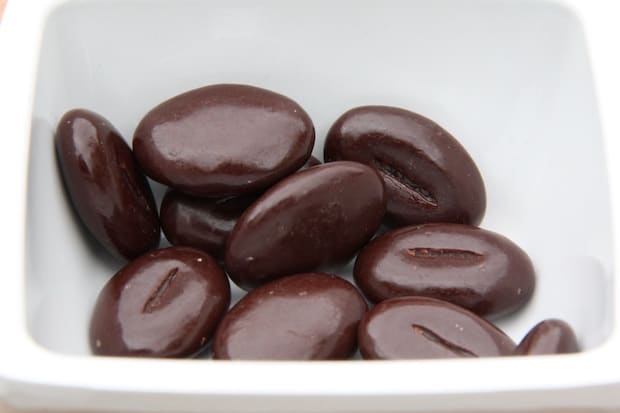
Coffee bean basics
A coffee bean isn’t really a bean at all. Coffee trees produce coffee “cherries,” which are actually fruits, and the seeds inside those cherries have become known as coffee beans. We generally discard the fruit and focus on the beans.
That wasn’t always the case. Throughout history, people who lived in areas where the coffee plant grew have been well aware of the effects of the coffee cherries. A shepherd in Ethiopia is said to have observed that goats who ate these cherries seemed livelier and happier. African tribespeople ground the cherries and mixed them with animal fat to fuel themselves on long hikes.
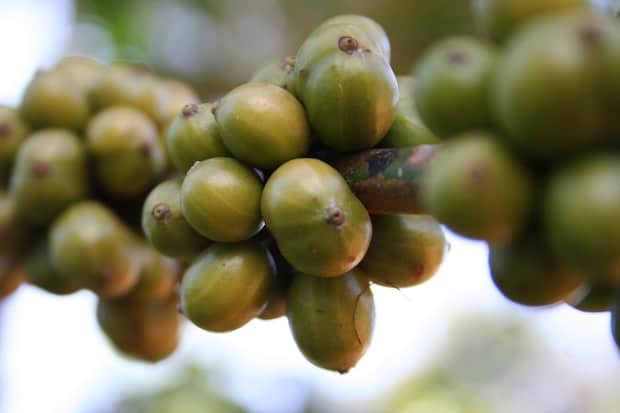
People learned to roast the beans and then grind them and prepare the infusion that we now know as coffee from the ground and roasted beans. Coffee made its way to Europe in the 1600s, thanks to new trade routes. It became popular in America during the Revolutionary War when soldiers used it to stay awake and alert.
Moderation is everything
While roasting and brewing beans is definitely the most popular way to consume coffee, it’s absolutely fine to eat either green or roasted coffee beans. As with anything else in life, there are both pros and cons to eating coffee beans, but most people will find that eating coffee beans in moderation offers significant health benefits.
Eating coffee beans FAQ
Can you eat coffee grounds?
Eating coffee grounds will be no more or less healthy than eating roasted coffee beans. They are the same thing. However, coffee grounds have the consistency of sand and will not feel very pleasant in your mouth. They may stick to your teeth, gums and tongue, and could be difficult to swallow.
Can coffee beans be cooked?
Coffee beans as you know them already are cooked! Those little brown nuggets have usually spent anywhere from six to 20 minutes being agitated over high eat to bring out their flavors and caramelize their sugars. Of course, raw green coffee beans can be cooked. Typically, they’re roasted.
Does eating coffee beans make you poop?
Just as drinking coffee accelerates your bowel movements, so does eating coffee beans. Green coffee beans may even cause diarrhea.
What are the best coffee beans to eat?
Any good quality Arabic coffee bean will do. Stay away from eating Robusta beans, as they contain a lot more caffeine and it’s just too hard to keep track of how much caffeine you’re consuming. Be aware that eating coffee beans doesn’t provide the same sensory experience that drinking coffee does, so you’re not likely to pick up a lot of subtle flavor notes. When it comes to eating whole beans, place of origin matters far less than roast degree. You’ll want to eat a dark roast, because its sugars have undergone maximum caramelization.
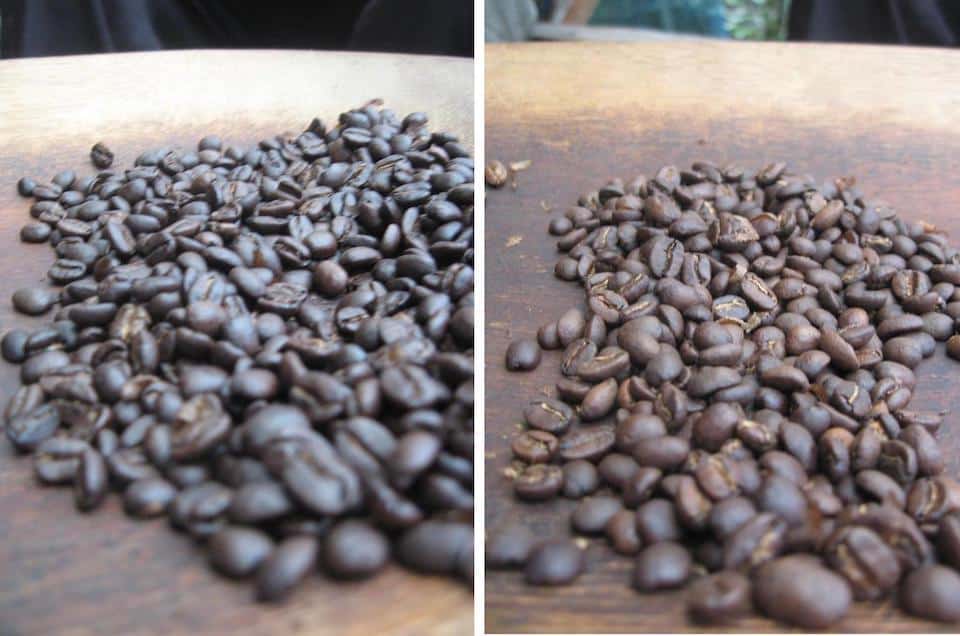
Does eating coffee beans help you lose weight?
Green coffee bean extract is often marketed as helping with weight loss, but there’s little evidence to support this. We’ve heard no such claims made about roasted coffee beans, so they probably won’t do much for weight loss, either.
